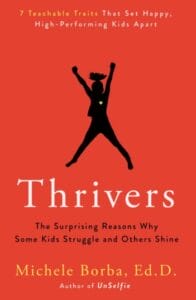The teenage mental health crisis: 1 in every 4 or 5 U.S. youth meets criteria for a mental disorder.
 The pandemic has been extremely challenging for many people, but especially for parents and students. We have seen a spike in mental health concerns surrounding teens, from depression to defiance to losing their academic motivation.
The pandemic has been extremely challenging for many people, but especially for parents and students. We have seen a spike in mental health concerns surrounding teens, from depression to defiance to losing their academic motivation.
Teens are most stressed and overwhelmed
American Psychological Association says that teens currently report worse mental health and higher levels of anxiety and depression than all other age groups—including adults.
San Diego State University researchers report that 12- to 17-year-olds experienced a 52 percent increase in major psychological distress, depression, and suicide since the mid-2000s.
American Academy of Child & Adolescent Psychiatry warns that one in every four or five youth in the U.S. now meets criteria for a mental disorder.
When striving isn’t enough
Dr. Michele Borba has been an educational psychologist for over 40 years, but has never been more concerned about kids and teens. In her latest book, THRIVERS: The Surprising Reasons Why Some Kids Struggle and Others Shine shows the urgency in updating current parenting and educational practices to follow science so children will have the potential to thrive and become their personal best.
“They are not okay,” she warns. “In fact, they are less happy and more stressed, lonely, depressed, and suicidal when compared with any previous generation — and those descriptions were identified prior to COVID-19.”
In short, our kids are failing to thrive, and if left as is will have grave consequences on our kids’ futures.
Many teens and kids have hopes and aspirations for their future, maybe college, or even the simpler things such as a family gathering — yet they are emotionally overwhelmed. These are good kids, they have goals and dreams but suddenly are feeling distressed and lonely.
How can we redirect a student that was striving and help them thrive in these challenging times?
Building THRIVERS
 Some young people aren’t struggling; they’re thriving. They cope with adversity, develop healthy relationships, and embrace change.
Some young people aren’t struggling; they’re thriving. They cope with adversity, develop healthy relationships, and embrace change.
They are ready for whatever the world throws at them, even in uncertain times. Borba calls these kids Thrivers, and the more she studied them, she wondered, What is their secret? And can it be taught to others?
Through her years of research Borba said:
“Thrivers are made, not born. Yes, the strengths and skills that help our kids thrive can be taught at any age,” she continues. “But in our new uncertain world, it’s a moral mandate that they must be added to our parenting and teaching agendas. Doing so is the best way to raise a generation of strong kids who are ready and able to handle whatever comes their way.”
Dr. Borba combed scientific studies on resilience, spoke to dozens of researchers and experts in the field, and interviewed more than 100 young people from all walks of life. In the end, she found something surprising: The difference between those who struggle and those who succeed comes down not to grades or test scores, but to seven essential character strengths that set Thrivers apart (and set them up for happiness and greater accomplishment later in life):
- Self-confidence: Healthy identify, using personal strengths to find purpose and meaning.
- Empathy: Understanding and sharing another’s feelings, and acting compassionately.
- Self-control: Managing stress, delaying gratification, strengthening focus.
- Integrity: Valuing and adhering to a strong moral code, ethical thinking to lead a moral life.
- Curiosity: Having open-mindedness and willingness to try new ideas, take risks, innovate.
- Perseverance: Exhibiting fortitude, tenacity and resolve to endure so as to bounce back.
- Optimism: Learning self-advocacy and keeping unrealistic pessimism to encourage hope.
Each of these seven character strengths is like a superpower that helps safeguard kids and teens against the depression and anxiety that threatens to derail them. And when those superpowers are combined, they become even more potent, creating a Multiplier Effect that prepares children to succeed in our fast-paced, ever-changing world.
Yes, they can be taught at any age, says Dr. Borba.
Order THRIVERS on Amazon today.
Also read: 5 Benefits of Therapeutic Boarding Schools.
Article originally written by Sue Scheff on Psychology Today.
###
If you are struggling with your teenager’s behavior and have exhausted your local resources, learn more about how residential treatment can help your troubled teen through emotional growth. Contact us today for a free consultation.





